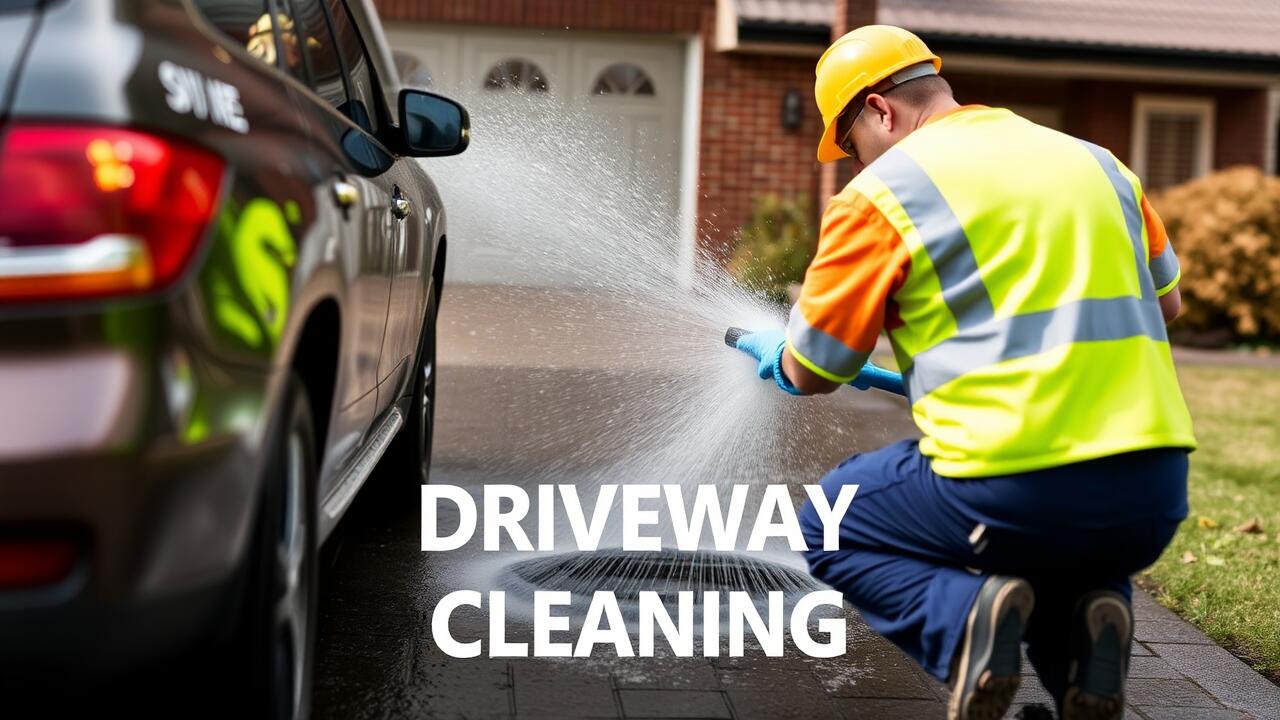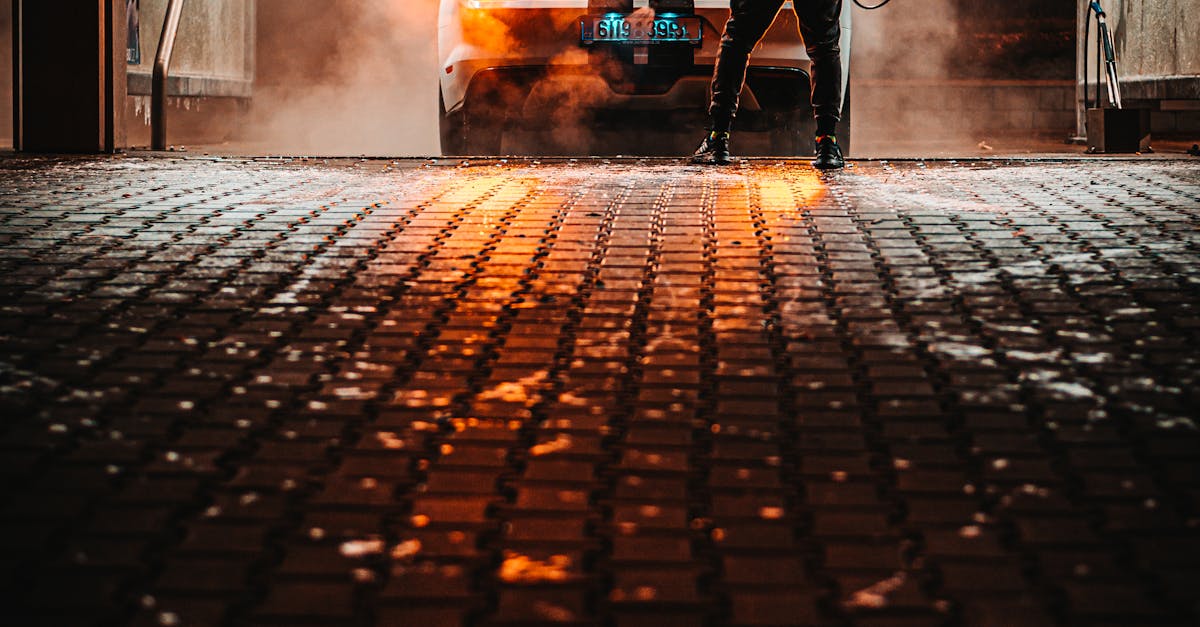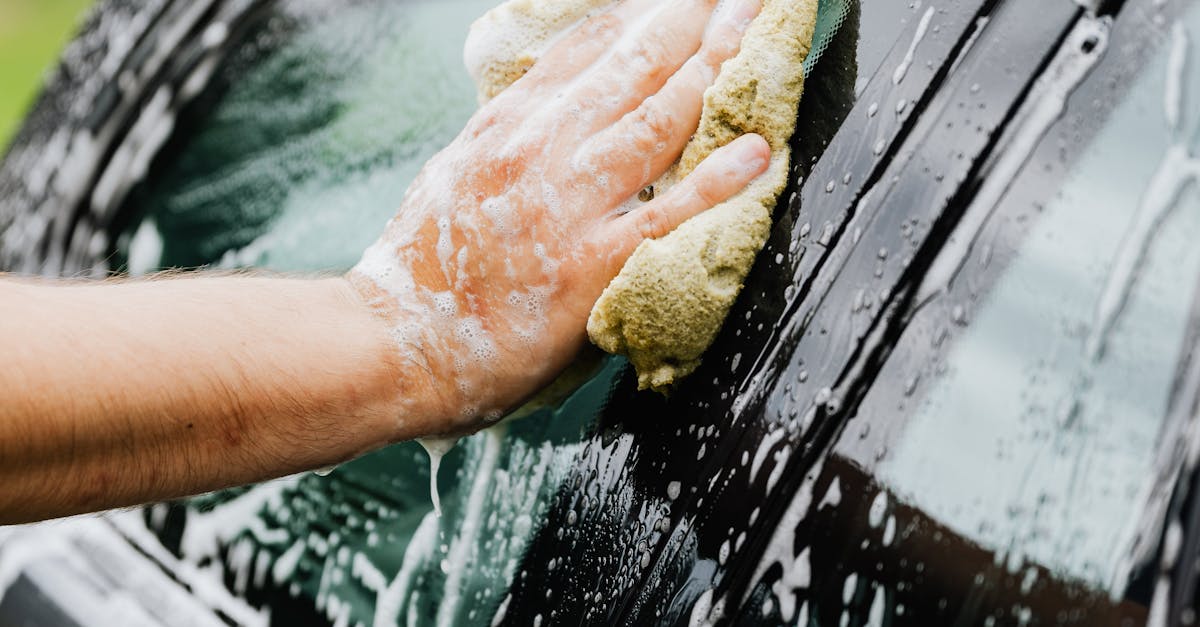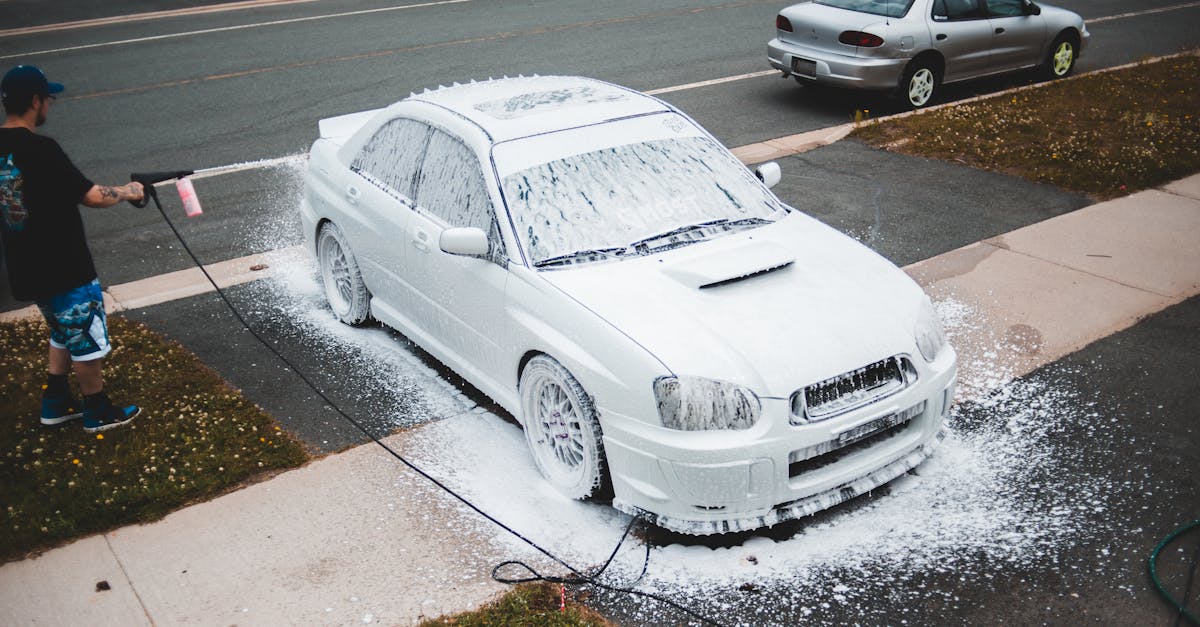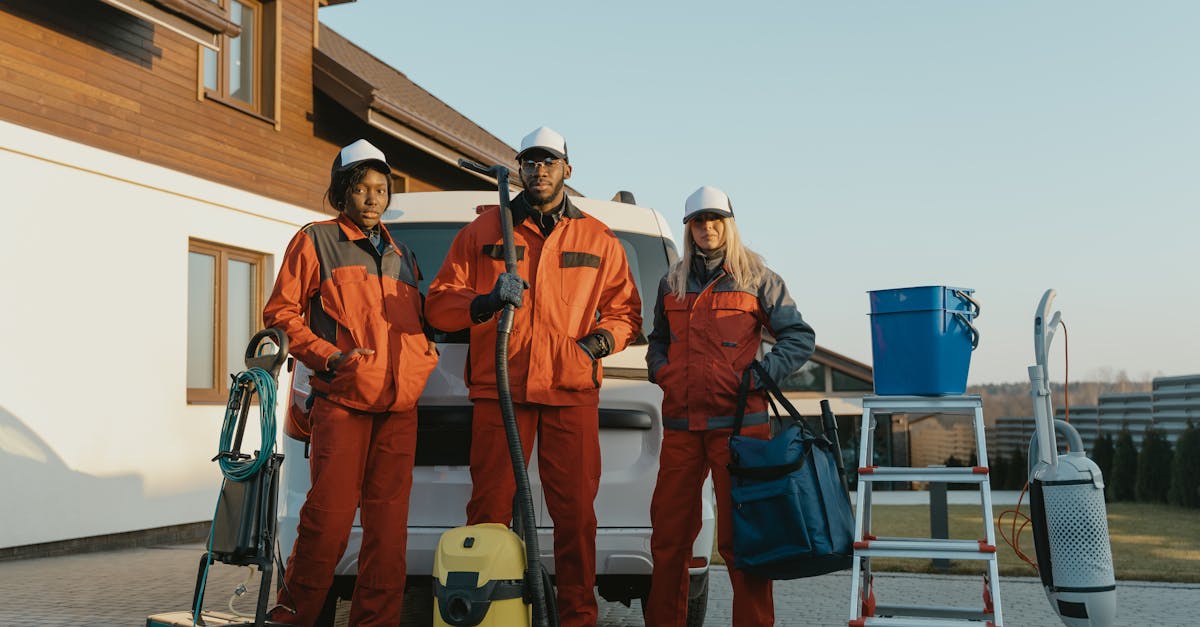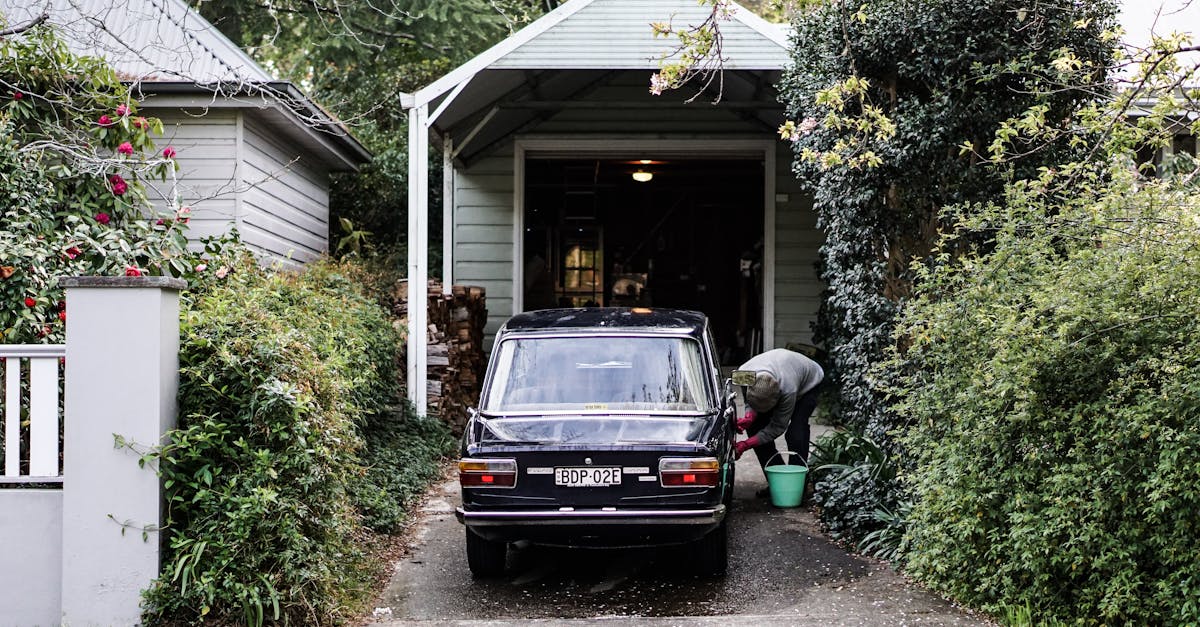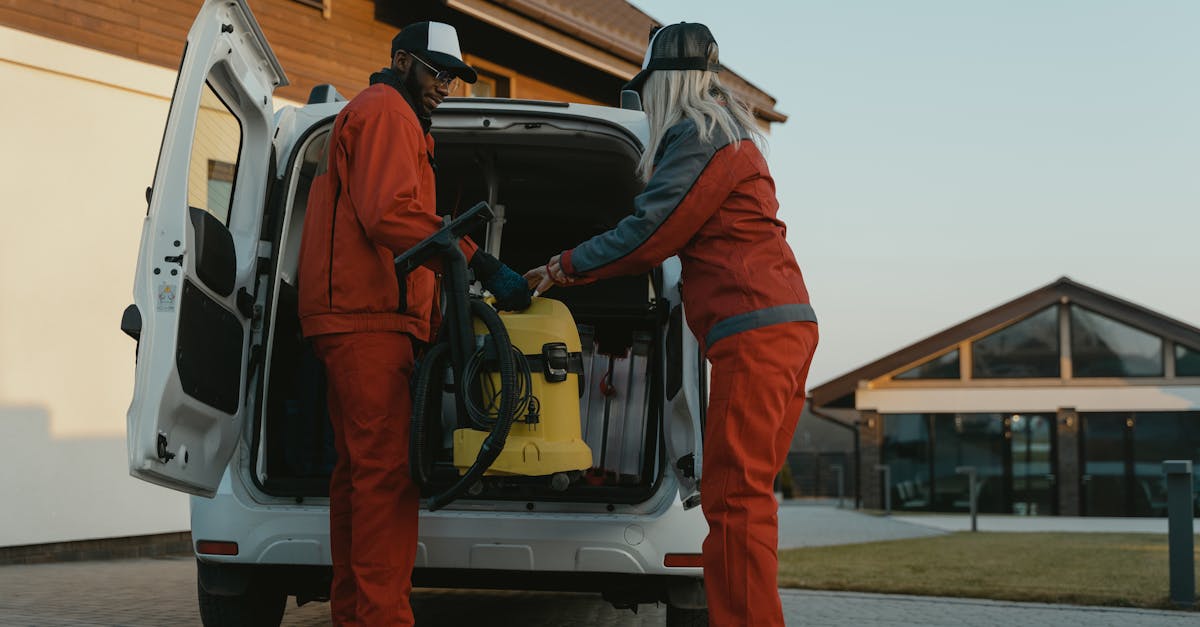
Eco-Friendly Cleaning Methods
For those looking to maintain an environmentally responsible approach to driveway upkeep, a variety of eco-friendly cleaning methods are available. One popular option involves using a combination of vinegar and water, which can effectively break down dirt and grime accumulated on the surface. This method eliminates the need for harsh chemicals, ensuring that local wildlife and plant life remain unharmed during the cleaning process. Many homeowners in the area have reported positive results from these natural solutions, emphasising their effectiveness alongside minimal environmental impact.
Another sustainable alternative is the use of biodegradable soaps or detergents designed specifically for outdoor cleaning. These products are formulated to be safe for the ecosystem while still providing powerful cleaning capabilities. In the context of local services, Driveway Cleaning in Leicestershire often incorporates these eco-friendly options, catering to those who value both cleanliness and sustainability. By prioritising these methods, residents can contribute to a healthier environment while keeping their driveways looking pristine.
Sustainable Alternatives for Driveway Care
Using sustainable alternatives for driveway care not only helps to maintain the environment but can also be effective in keeping your driveway in top condition. Organic cleaners made from natural ingredients such as vinegar, lemon juice, and essential oils can tackle grime without the harsh chemicals found in conventional cleaning products. These eco-friendly options reduce harmful runoff that can affect local waterways and promote a healthier ecosystem.
For those living in areas like Leicestershire, integrating sustainable practices into driveway cleaning routines makes a positive impact. A combination of biodegradable soaps and hot water can effectively break down dirt and stains, while also being gentle on both surfaces and the planet. By choosing products that prioritise sustainability, homeowners contribute to reducing their carbon footprint and supporting green cleaning initiatives in the region.
Dealing with Tough Stains
Tough stains can be daunting when it comes to driveway maintenance, but effective methods do exist. For oil and grease stains, it’s often advisable to start with absorbent materials like kitty litter or sawdust. These substances help to soak up excess oil before moving on to cleaning solutions. A mixture of hot water and dish soap can be used for a preliminary scrub, ensuring that the stain is lifted from the surface. Regular maintenance and prompt action on spills can significantly ease the effort required for driveways.
In Leicestershire, residents often seek assistance to tackle stubborn marks. Harsh chemicals are not always necessary; a paste of baking soda with water can serve as an effective and eco-friendly solution. This gentle abrasive works well on various stains without damaging the driveway material. Additionally, power washing can be beneficial for deep-seated grime, making it easier to restore the driveway’s appearance. Combining these methods ensures a thorough approach to driveway cleaning, leaving it looking clean and well-maintained.
Targeting Oil, Grease, and Other Stains
Oil and grease stains can be particularly stubborn on driveways, often requiring targeted approaches for effective removal. One common method involves using a commercial degreaser specifically designed to tackle such challenging marks. These products penetrate the grease, breaking it down and making it easier to wash away. For those opting for eco-friendly options, a simple mixture of detergent and warm water can be just as effective when applied promptly after a spill.
In regions like Leicestershire, DIY solutions can also be beneficial. For example, sprinkling baking soda directly onto the stain can absorb the grease. After letting it sit for several hours, a scrub with a stiff brush and a rinse with water will usually suffice. Regular maintenance is key; promptly addressing spills will prevent them from setting in and becoming more difficult to clean during driveway cleaning in Leicestershire.
The Role of Bicarbonate of Soda
Bicarbonate of soda, commonly known as baking soda, is a versatile and effective option for driveway cleaning. Its mild abrasive properties help lift dirt and grime without causing damage to the surface. This makes it particularly suitable for driveways made from various materials such as concrete, brick, or paving stones. When combined with water, it forms a paste that can be applied directly to stains, allowing it to penetrate and break down built-up residues.
In places like Leicestershire, where weather conditions can lead to accumulation of algae and moss, baking soda’s antibacterial properties make it an excellent choice for maintaining a clean driveway. It not only helps in tackling stubborn stains but also offers a natural alternative to chemical cleaners. With its affordability and effectiveness, bicarbonate of soda is increasingly becoming a go-to solution for homeowners seeking environmentally friendly driveway cleaning options.
Using Baking Soda for Driveway Cleaning
Baking soda is a versatile and eco-friendly option for driveway cleaning. Its gentle abrasive texture allows it to effectively lift dirt and grime without damaging the surface of the driveway. A simple paste made from baking soda and water can target stains, offering a non-toxic alternative to harsh chemicals that may harm the environment. This approach aligns well with the growing interest in sustainable cleaning methods, especially for residents seeking solutions for Driveway Cleaning in Leicestershire.
To use baking soda effectively, sprinkle it generously over the stained area and dampen it with water. After allowing it to sit for a short while, scrub gently with a stiff-bristled brush. The combination of baking soda’s mild alkalinity and scrubbing action can help break down stubborn stains, leaving the driveway looking fresh and clean. This method not only aids in maintaining the driveway’s appearance but also supports a greener lifestyle.
FAQS
What are the most eco-friendly methods to clean a driveway?
Eco-friendly methods include using vinegar, baking soda, and biodegradable detergents. These options minimise environmental impact while effectively cleaning the surface.
How can I tackle tough stains like oil and grease on my driveway?
For tough stains, it’s best to use a mixture of warm water and dish soap, or a commercial degreaser designed for driveways. Scrubbing with a stiff-bristled brush can also help lift the stain.
What role does bicarbonate of soda play in driveway cleaning?
Bicarbonate of soda, or baking soda, acts as a mild abrasive and a deodoriser. It can effectively remove stains and neutralise any unpleasant odours from your driveway.
Are there sustainable alternatives for driveway care?
Yes, sustainable alternatives include using plant-based cleaners, homemade solutions like vinegar and baking soda, and pressure washing without harmful chemicals.
How often should I clean my driveway for optimal maintenance?
It’s recommended to clean your driveway at least once or twice a year, or more frequently if you notice stains or build-up from weather conditions or usage.
